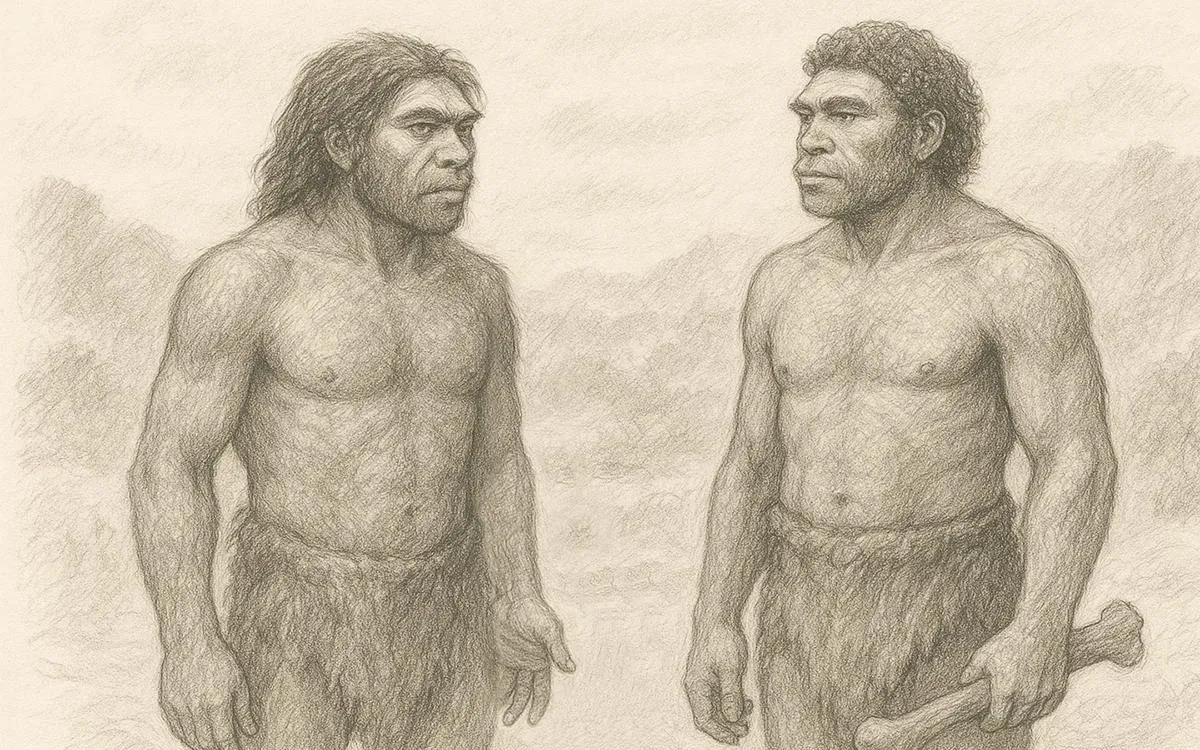
The journey of the first people who set foot in the Americas was not just marked by their stone technology and survival skills; it also involved a profound genetic legacy. A groundbreaking study published in Science suggests that these early inhabitants carried genetic traits inherited from two extinct relatives: the Neanderthals and Denisovans. This genetic inheritance may have played a crucial role in their ability to adapt and thrive in new and challenging environments.
Led by Fernando Villanea from the University of Colorado Boulder and David Peede from Brown University, the international research team focused on the gene MUC19. This gene is responsible for coding mucin proteins, which are essential for producing mucus that protects tissues from pathogens and may enhance immunity. The study's findings indicate that Indigenous Americans inherited a Denisovan-specific version of MUC19, which appears to have increased in frequency over time due to its potential evolutionary advantages.
According to the research, approximately one in three Mexicans today carries a copy of this Denisovan variant. This gene is less prevalent in other populations, with about 20% of Peruvians, roughly 1% of Puerto Ricans, and a similar percentage of Colombians also possessing it. In stark contrast, only about 1% of individuals with Central European ancestry carry this variant. The researchers suggest that these differences reflect the higher proportion of Indigenous American DNA found in Mexican populations.
One of the most astonishing discoveries made by the scientists was how this Denisovan gene spread. Rather than passing directly from Denisovans to modern humans, the gene integrated into humans via Neanderthals. Villanea likened this genetic composition to an “Oreo,” where the Denisovan sequence serves as the filling, surrounded by Neanderthal “cookies.” This study marks the first recorded instance of a Denisovan gene entering the human genome through a Neanderthal intermediary.
To arrive at these findings, researchers analyzed the genomes of 23 ancient Indigenous Americans who lived before European contact, along with modern genetic data from populations in Mexico, Peru, Colombia, and Puerto Rico. They compared these genomes with sequences from three Neanderthals and one Denisovan, revealing that the segment of MUC19 associated with Denisovans is quite lengthy and contains variable number tandem repeats (VNTRs). These repeated DNA segments can influence how the protein binds to sugars, potentially affecting immunity.
This study provides compelling evidence that the MUC19 gene underwent positive selection within Indigenous American populations, suggesting it conferred a survival advantage. “In terms of evolution, this is an incredible leap,” stated Villanea. “It showcases an amount of adaptation and resilience within a population that is simply amazing.” However, the precise reasons why this Denisovan variant thrived in the Americas while remaining scarce elsewhere remain a mystery.
Researchers hypothesize that the continent's first inhabitants faced diverse climates, foods, and pathogens, and possessing the MUC19 variant may have aided their survival. Over thousands of years, natural selection likely facilitated the gene’s spread among Indigenous peoples. Although Denisovans were identified only 15 years ago through DNA extracted from a bone fragment in a Siberian cave, their genetic legacy continues to impact modern populations. For instance, some modern-day Oceanians exhibit up to 5% Denisovan DNA in their genomes, further illustrating the far-reaching influence of these ancient humans.
Looking ahead, Villanea and his colleagues plan to investigate how different versions of MUC19 affect contemporary health, particularly among Latino and Indigenous American populations. This ongoing research promises to deepen our understanding of the intricate connections between ancient genetics and modern health outcomes.